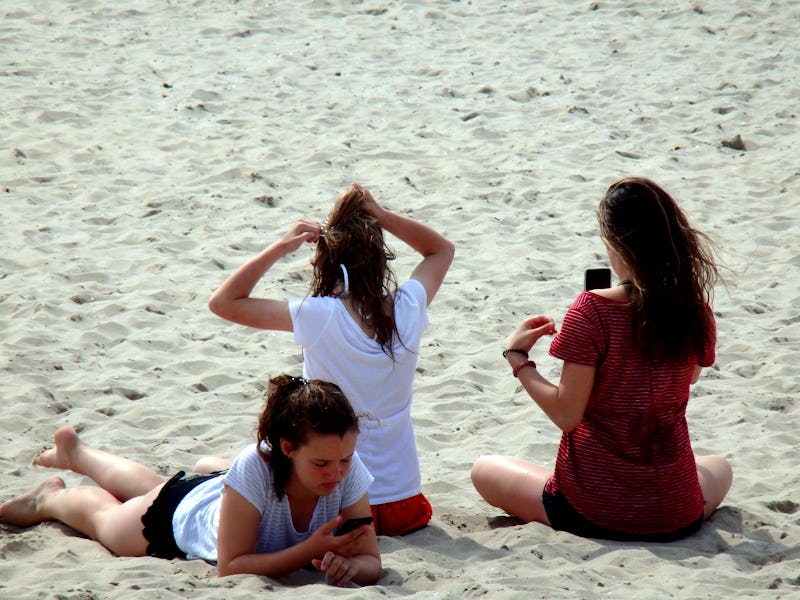A Cognitive Scientist Explains the Evolutionary Roots of Smartphone Addiction
It's not the smartphones that are addictive.

Much ink has been spilled worrying about what the scourge of smartphone addiction is doing to the kids, in particular. So much so that Apple rolled out a suite of particularly strong tools for parents to monitor their children’s screen time through the Family Sharing feature. The tools let you control when a child can look at certain apps and devices, as well as set time allowances to ensure they’re not streaming too much.
“This is going to set off wars within families,” Apple analyst Philip Elmer-DeWitt, told Inverse.
However well-intentioned these efforts are, the early research suggests that the nature of smartphone addiction may be fundamentally misunderstood. In fact, smartphones themselves might not actually be all that addictive in the first place, Samuel Veissière an anthropologist and cognitive scientist at the Culture, Mind, and Brain Program at McGill University in Montreal, tells Inverse.
“My work on smartphone addiction aims to turn two pieces of conventional wisdom on their head,” he said. “The first is that smartphones and social media make us antisocial, we have reason to believe it’s actually the contrary. We’re hyper-social and that’s why we like our devices so much.”
Apple rolled out new tools to help you fight your smartphone addiction. But it might not be the iPhones that are addicting us in the first place.
The second, he said, is that the devices themselves are what’s addictive. Push notifications, pings, and read receipts don’t necessarily help, but the only reason they’re effective is because our brains have learned to associate them with human activity. We crave Facebook likes because they indicate that people are seeing us, which nourishes an essential human desire for person-to-person connection.
“To find meaning, to construct identity, to know what is right and wrong, to develop self esteem, we need constant feedback,” he said. “A lot of anxiety arises from what you call cellphone addiction, but it’s really wanting to hear back from others. We’re getting anxious because we’re anxious about being ghosted. And this desire to be seen and valued and looked at, it gets hyper-activated because the channels for social interactions are happening much more rapidly.”
Smartphones Kick Our Cravings Into Overdrive
This isn’t to say that Veissière says that the concern over smartphone addiction is misplaced.
“The amount of information that’s available has increased exponentially,” he explains. “But because the human mind is not really good at dealing with too much information, it’s going to zero in on a few things, so there’s the risk of doing it too much, increasing echo chambers, not uniting people as much as we thought, but also increasing culture divide. There are pros and cons, but we’re now a little more on the con than the pro side.”
So how’d we get here? Veissière explains the phenomenon as being similar to our relationship with fatty and sugary foods.
Humans developed cravings for these particular tastes to make sure we got enough sugar and fats when these nutrients were much rarer and harder to find. When we developed these instincts, the cravings were healthy, but in modern day, they’re less so. To that end, Veissière envisions a slow-tech movement that resembles what the slow food movement accomplished for the way we eat, pushing consumers away from fast food hamburgers to trends like farm-to-table.
“We’re not preaching abstinence, that doesn’t work,” he said. “But younger millennials are actually kind of lonely, they’re interacting less face to face, they’re having less sex, they’ve missed out on the quality of interaction.”
Fixing this troubling trend requires coming up with better guidelines for what sorts of communication should happen virtually and when it’s time for us and our friends to put the phones away. Weekend no-email policies, or the phone stack rule are two examples of how socialization can reinforce a healthier relationship with this technology.
If you’re looking for some other strategies for cutting down on your smartphone use, check out our full guide here.